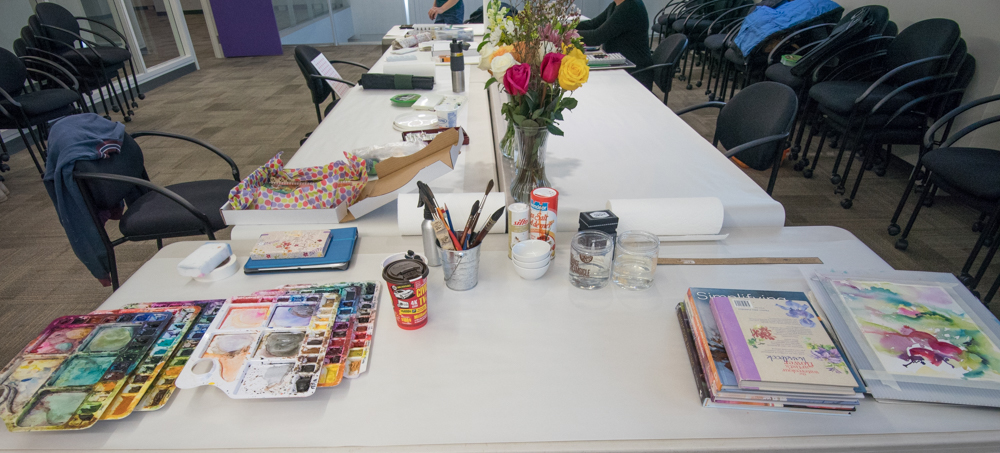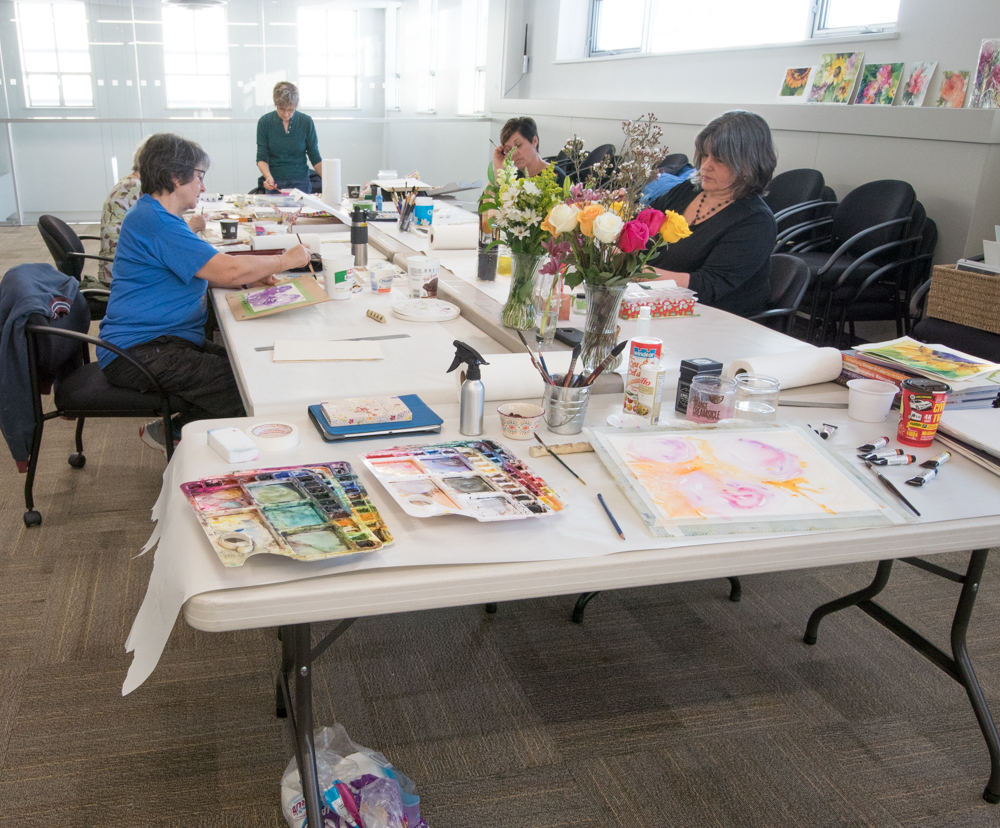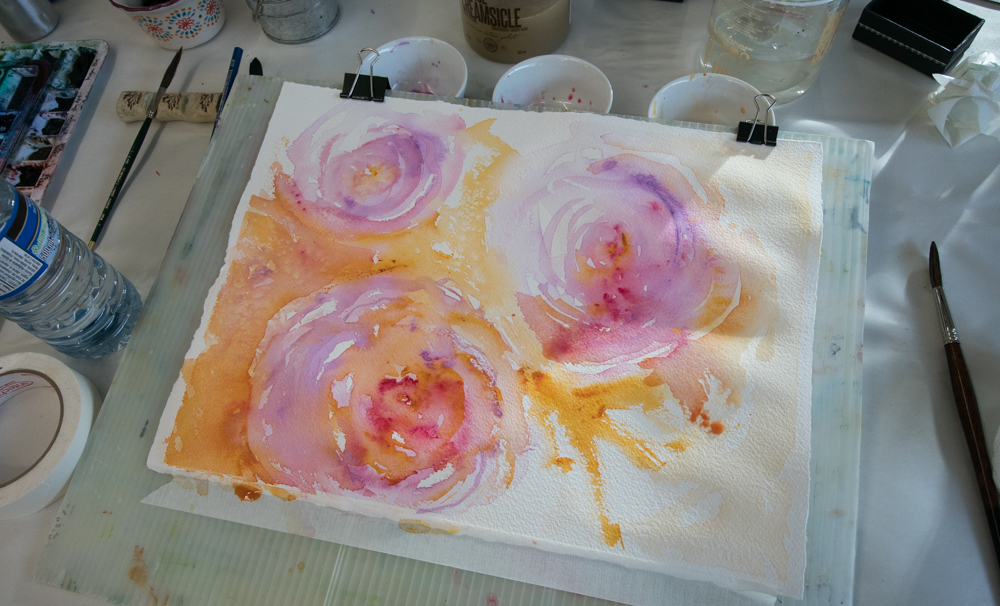Teaching Moments in Watercolour
I hate that saying "Those who can't do, teach." It's one of those stupid, arrogant blanket statements that always gets my feathers ruffled, especially since teaching watercolour has added so much fulfillment and joy to my life as an artist. I suppose that for some artists, it's all about seeing their work hanging in galleries, and that is exciting and satisfying, but for me, there's not much that beats the experience of sharing my thoughts and insights into this medium of watercolour that has given me so much, and connecting with others through painting and learning together.

Earlier this month I taught a two day workshop here in my home town. It was a small class, and while that may not be as profitable financially, I love the experience of a small and intimate class setting, being able to work very directly with students and the little in-jokes and group dynamic that comes out of spending time together focused on growing our watercolour skills.

I hosted day one of the workshop in my studio, and I even made lunch, homemade soups for the class. Through the day we worked on understanding the role reference photos play in creating landscape paintings and different approaches to using reference material in interpretation. There is a balance that every artist needs to find between "copying" a photo and loose self-expression.
For the second day of the workshop and a larger class size, we moved to a studio space in Dawson Creek and a floral theme. Painting flowers can be a great way of learning composition skills, as the artist can "arrange" the flowers in the painting to suite their eye and style, with a goal of creating an appealing and balanced design. We painted roses, learning to look for shapes and patterns, and then experimented with negative painting and white-background interpretive studies of live flowers.

Working with a live "audience" is one of the reasons I teach the way I do in my online classes. In physical classes I can see the areas students struggle with and develop ways to address them that propels understanding. I learn how to articulate my processes as I demonstrate to a watching group, who asks questions and applies technique. And I can see when frustration starts to set in and gently encourage.
I'm so thankful for every student that has passed through my studio, remembering the times when we crowded into an untidy space in my home, the moments when I lose my words and can't articulate even the most basic instructions, watching together the flash of magic when beautiful things start happening on paper that no one could have planned, and the little "almost-real" moments in my online classes when the distance doesn't matter and you and I are working together, side by side. I really, really love this job.
